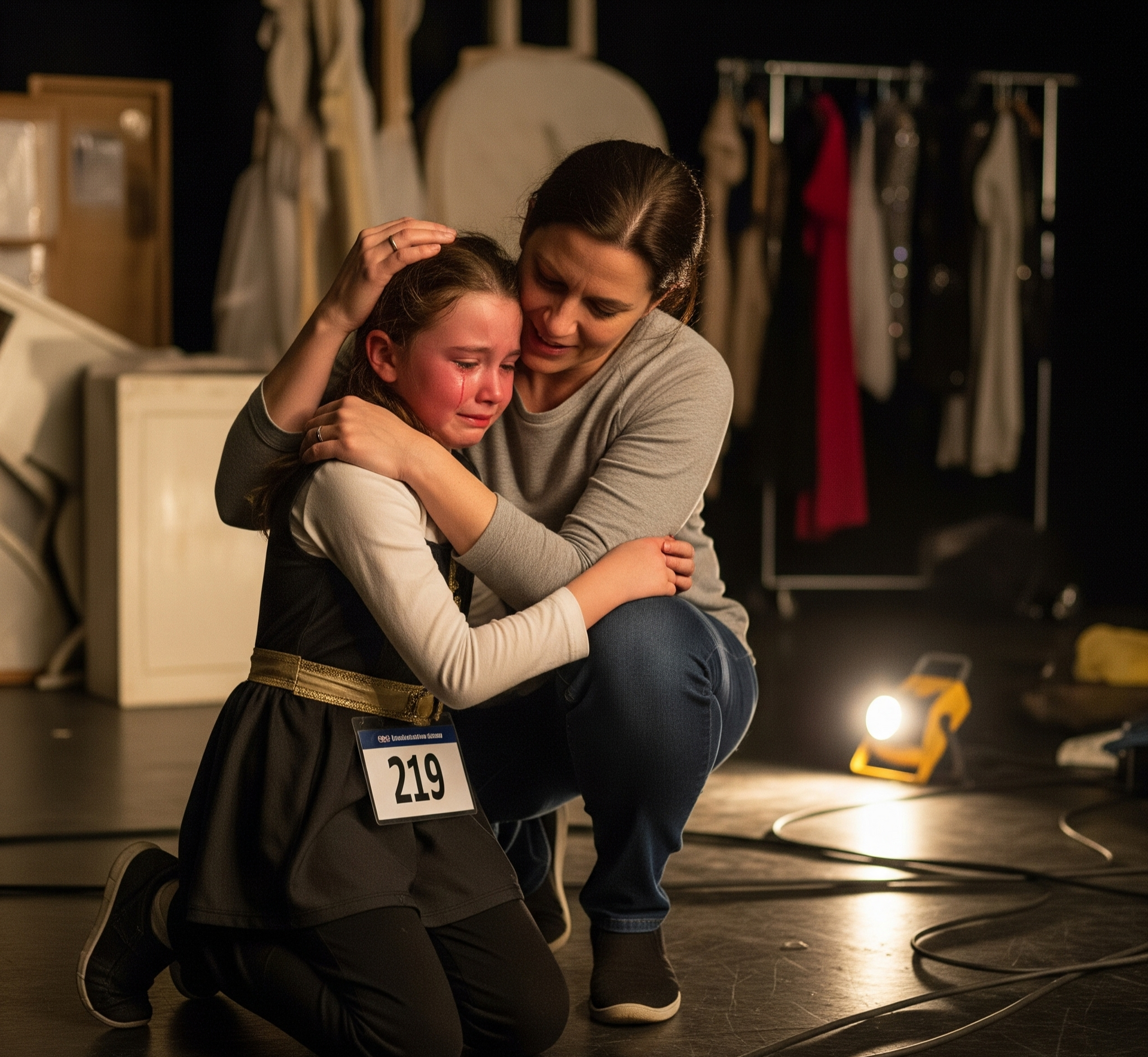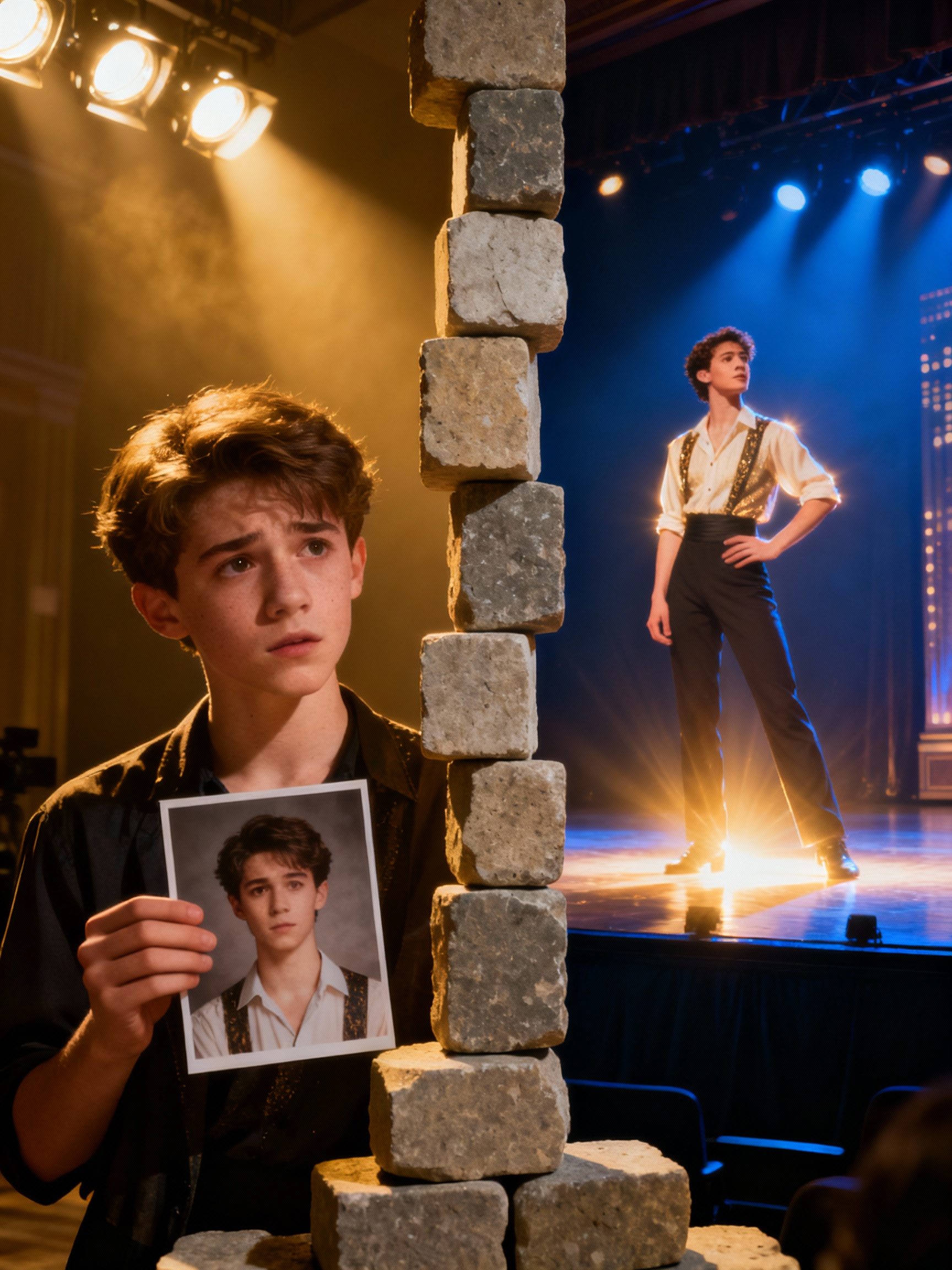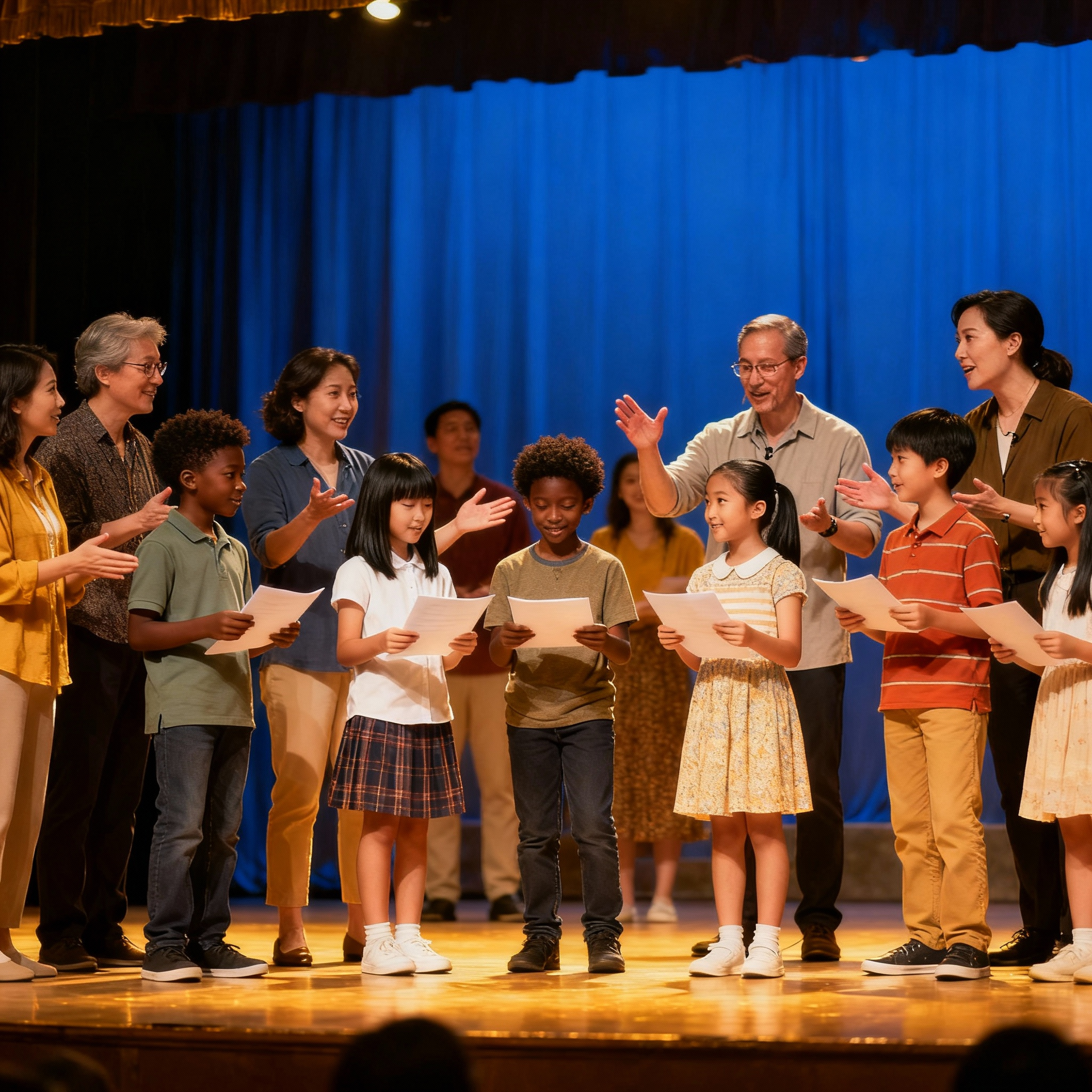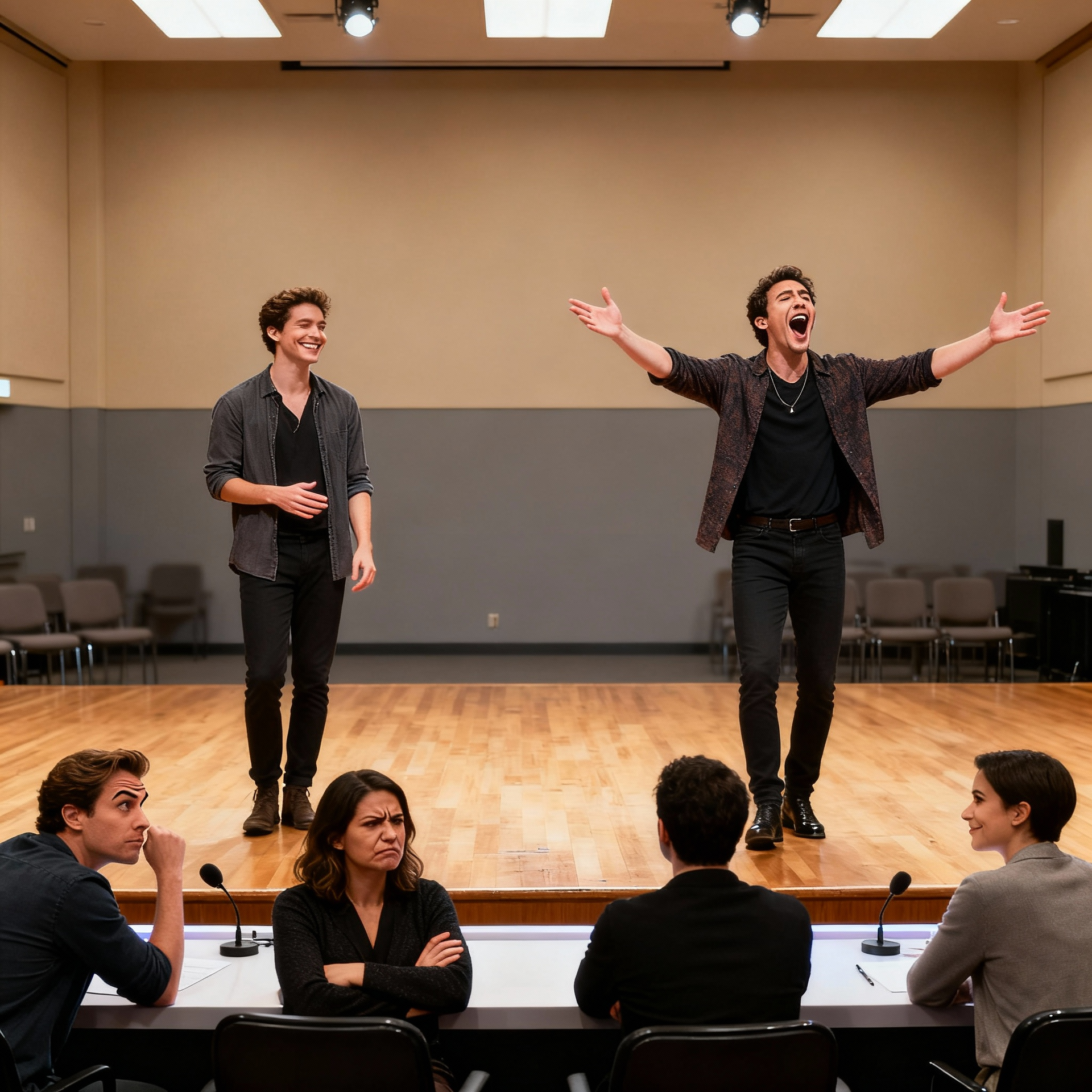The Most Valuable Lesson They’ll Ever Learn:
Let Them Fail!
By Victor Lopez
As a vocal coach and the owner of Lopez Studios Inc. for over 30 years, I've had the privilege of watching countless young artists grow and find their voices. I’ve seen them shine on stage, land lead roles, and celebrate their victories. But I've also seen the other side, the missed notes, the rejected auditions, and the quiet disappointments. And in those moments, I've noticed a pattern with parents that, while well-intentioned, can be a major roadblock to their child’s long-term success. I'm talking about the instinct to rescue them from failure.
It's natural to want to protect your child from pain. When they miss a line, get passed over for a part, or don't perform their best, it’s hard to stand by and watch them struggle. But what if the greatest gift you could give them is the space to fall? What if their biggest lessons aren't learned in success, but in navigating the stumbles?
The "Wrong Room": A Philosophy of Growth
I've always told my students, “If you are the top of your league in any room for an extended period of time, you are in the wrong room.” It's a phrase that often gets a raised eyebrow, but the truth is, true growth happens when you are challenged. When a student lands every lead role in every high school show, there’s a risk of developing a big head instead of a strong work ethic. Confidence is crucial, but it’s a different beast from the earned humility that comes from striving for something you didn't immediately get.
When you constantly swoop in to prevent your child from facing the consequences of not preparing or not making the cut, you are robbing them of the opportunity to develop resilience. You are teaching them to be dependent, not self-aware. They miss out on learning how to handle disappointment, how to problem-solve when things don’t go their way, and how to navigate challenges on their own.
Let’s be clear: this isn't about being unsupportive. It's about shifting your support from preventing failure to helping them learn from it.
Learning from the "No": Real Stories of Resilience
Let me share a couple of stories from my years here at Lopez Studios, Inc. that highlight this perfectly:
One of my former students, Sarah, was a truly talented singer and a dedicated performer. She auditioned for a lead role she was perfect for, or so we all thought. She sang beautifully, acted with passion, and truly gave it her all. But she didn't get the part. She was devastated. The initial impulse, from both Sarah and her parents, was to blame the directors. They questioned if the directors even knew what they were doing or if they had a predetermined bias. But instead of letting that anger fester, they came to me.
Together, we sat down and I explained to Sarah, "Sometimes, it's not about what you did wrong. It’s just that the director had a specific vision, a certain type they were looking for, and it wasn't you this time. It doesn't mean you're not talented." This perspective helped Sarah understand that the world doesn't revolve around her and that she couldn't control the decisions of others. She learned that while failure felt bad, it wasn't a reflection of her talent or hard work. Years later, Sarah went on to study musical theater at a top-tier program and is now successfully performing professionally. She often credits those early rejections and her parents' refusal to "fix" things for her, along with our guidance, as the reason she developed her incredible drive and resilience.
Then there was Michael, a budding actor who, in high school, was absolutely devastated when he wasn't cast in the lead role he desperately wanted. He was accustomed to getting major parts and felt this was a huge blow to his budding career. His parents saw his disappointment but resisted the urge to tell him the director made a mistake. Instead, they brought him to me. "It hurts, doesn't it?" I acknowledged. "The director may have needed a different height or a different look for this particular production. It has nothing to do with your talent." We then worked together to find a way for him to grow from the experience.
This approach prevented Michael from falling into the trap of blaming others and instead encouraged him to see the situation from a broader perspective. Michael initially grumbled, but he started attending rehearsals for the show, watching the lead actor, and even took on a smaller, ensemble role with enthusiasm. That experience, of not getting what he wanted but still participating and observing, taught him invaluable lessons about collaboration, humility, and the different facets of performance. He realized that sometimes, the biggest growth comes from not being in the spotlight. Michael is now a successful working actor in New York, and he often tells me that missing out on that high school lead role was one of the best things that ever happened to him because it taught him how to truly work for his craft, not just expect it.
These young artists, because their parents allowed them to experience failure and we guided them through the process, learned that while it felt bad, it wasn't the end. They learned that sometimes it's about fit, not talent. They developed an incredible drive and resilience that simply couldn't have been fostered if every path had been cleared for them.
Our Role at Lopez Studios
At Lopez Studios Inc.,we believe in a philosophy that complements this parental approach. We don't just teach performance; we teach life skills. When a student comes to us with an experience like Sarah's or Michael's, our first step is to validate their feelings. It's okay to be sad, frustrated, or angry. Then, we use the moment as a teaching opportunity.
We help them understand that in the world of performing arts, an audition isn't a test, it's an opportunity. We talk about the factors beyond their control, like a director's specific vision, the desired cast chemistry, or even the subtle nuances of a character they may not have embodied at that moment. Our goal is to shift their focus from the outcome (getting the part) to the process (the experience of auditioning). We encourage them to see every audition as a chance to perform for a new audience, gain feedback, and build their resume of experiences. This mindset prepares them for a lifetime of resilience, where success isn't defined by a single win but by their continuous growth.
The most profound lessons are found in the struggle. They're found in the quiet moments of reflection after a tough rehearsal, in the drive to work harder for the next audition, and in the realization that their worth isn't tied to a single performance. The child who learns to bounce back from a "no" will be far more prepared for the world of performing arts and life itself than the one who has never heard the word.
As parents, our role in my opinion isn’t to build a cushion for every fall. It's to be their foundation, the steady ground they can return to after they’ve picked themselves up. Trust them to be capable. Trust them to be resilient. Let them fail, because in doing so, you are allowing them to truly succeed. The next time your child faces a setback, resist the urge to rescue them. Instead, walk with them through the process, and watch them become the confident, independent, and resilient artists they are meant to be.
RELEVANT RESOURCES TO EXPLORE
COMING SOON!
SHARE THIS BLOG POST










